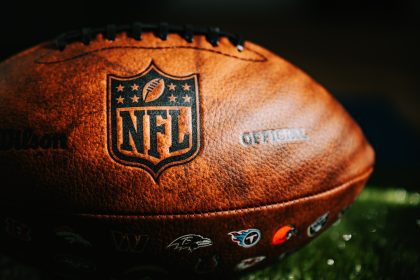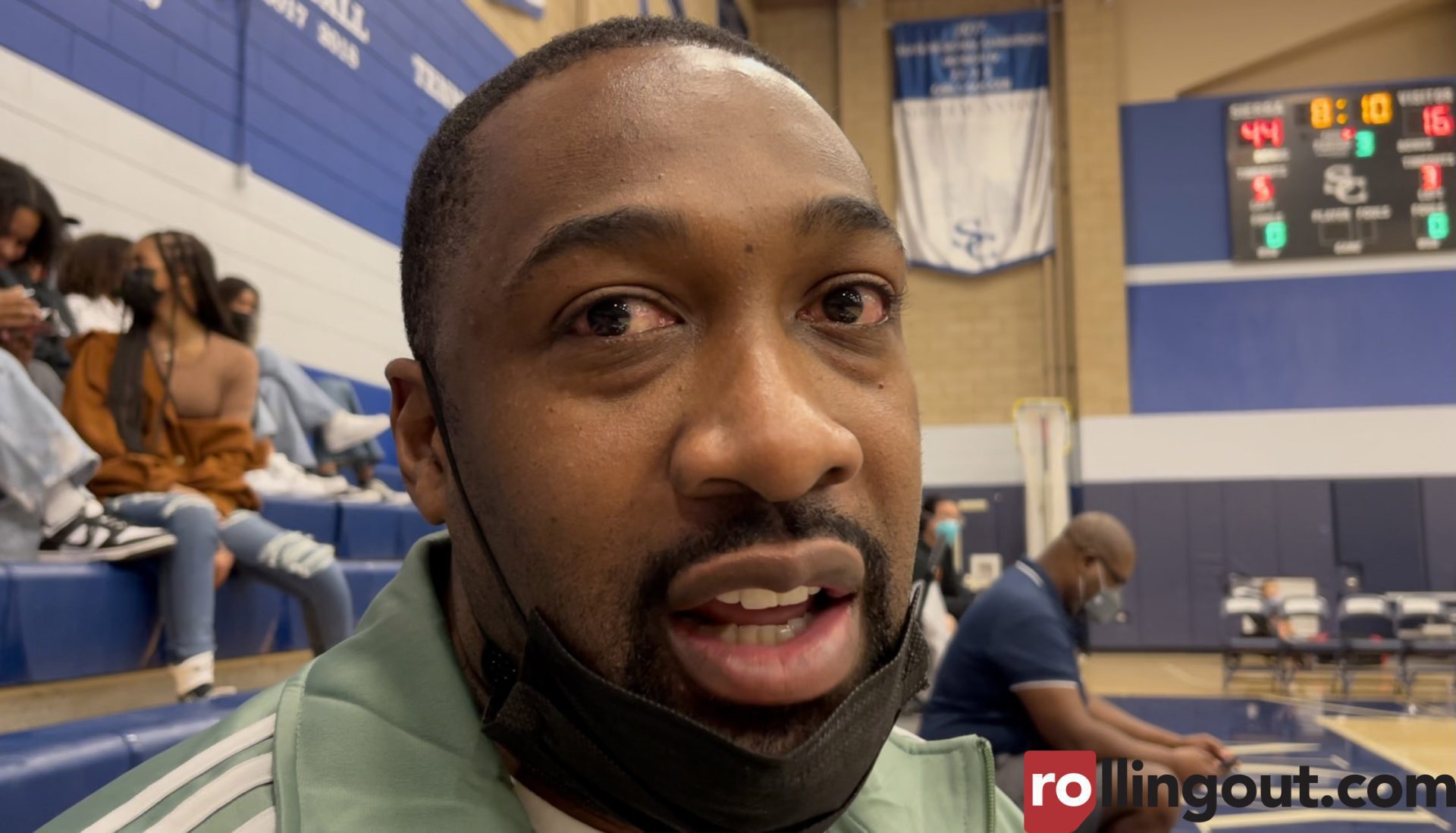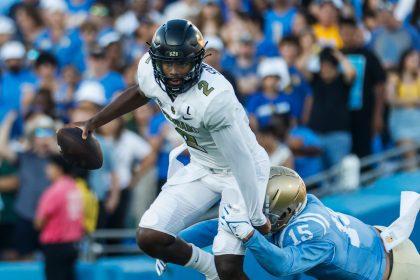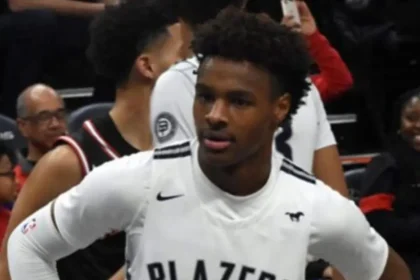College football coaching salaries hit historic highs in 2024

Evolution of coaching compensation
The landscape of college football coaching has seen dramatic changes in recent years, with top-tier coaches now commanding salaries that rival those of high-level executives in other industries. This shift reflects the growing commercialization of collegiate athletics, as football programs continue to generate millions of dollars in revenue each year. As a result, the demand for elite coaches has skyrocketed, leading to increasingly competitive compensation packages for the most successful figures in the game.
Financial leadership
At the forefront of this change is Kirby Smart, whose $13.2 million annual salary sets a new benchmark for coaching compensation in collegiate sports. As the head coach of the University of Georgia’s football team, Smart’s contract highlights the complexities of modern coaching deals, which now include a mix of substantial guarantees, performance incentives, and retention clauses. This type of compensation is a reflection of the immense financial value coaches bring to their programs, with their performance directly influencing ticket sales, television revenue, and overall team success.
Smart’s contract illustrates how college football has shifted from treating coaches as mere employees to viewing them as key figures in the financial success of the athletic department and the university at large. His salary not only sets a precedent within the Southeastern Conference (SEC) but also influences other programs across the nation to rethink their coaching salary structures.
Contract complexities
Today’s coaching contracts are far more intricate than ever before, going beyond a base salary to include various bonuses and incentives designed to reward success and retain top talent. These contracts can include:
Performance bonuses
Coaches can earn additional compensation based on the team’s performance, such as reaching bowl games, winning championships, or achieving a certain win-loss record.
Buyout clauses
If a coach decides to leave a program early or is dismissed before the contract’s expiration, buyout clauses outline the financial terms under which either party can break the agreement.
Retention incentives
Many coaching contracts feature retention bonuses to incentivize coaches to stay with a program for an extended period. These rewards are typically paid out at key intervals or after a set number of years.
Academic achievement rewards
Some programs include bonuses tied to academic success, such as maintaining certain GPA standards for the team or producing a certain number of student-athletes who graduate on time.
Facility improvement provisions
To stay competitive in the arms race for recruits, coaches’ contracts may include stipulations for enhancing athletic facilities, helping maintain the program’s attractiveness.
Regional variations
While salaries for top coaches continue to climb nationwide, the Southeastern Conference (SEC) stands out as the dominant force in coaching compensation. The SEC has long been a powerhouse in college football, and its schools are willing to invest heavily in top-tier coaches to maintain their competitive edge. Programs like Alabama, Georgia, and LSU routinely offer substantial salaries to their head coaches, reinforcing the importance of having the best leadership to sustain championship-level programs.
This regional dominance reflects a broader trend: as football becomes an increasingly central part of universities’ financial strategies, the SEC, with its massive media deals and successful programs, sets the standard for coaching compensation. Other conferences, particularly those in the Big Ten and ACC, are also beginning to increase coach salaries to remain competitive in the evolving landscape of college football.
Investment impact
The massive investments universities make in coaching salaries are justified by the revenue streams that football programs generate. Coaches like Smart have a direct hand in driving these revenue streams through:
Program revenue generation
Football is one of the largest revenue generators for athletic departments, with money coming from ticket sales, merchandise, and bowl game appearances. A successful coach is seen as a direct contributor to these revenue streams, making their salary a worthwhile investment.
Alumni engagement
Successful coaches boost alumni engagement and donations. Football teams that consistently perform well on the field create an enthusiastic fanbase, increasing alumni interest and their willingness to contribute financially to the university.
Student recruitment
Winning football teams attract recruits not only from high schools but also from transfer portals. A successful coach is key to maintaining a pipeline of talented athletes, which in turn keeps the program competitive.
Brand enhancement
Top-tier coaches elevate the university’s brand, making it more attractive to prospective students, sponsors, and donors. A football program’s national visibility through success can benefit the entire institution.
Athletic department growth
A strong football program drives broader athletic department growth. The revenue and visibility generated by successful football teams can help fund other sports, keeping the athletic department in the black.
Future implications
The skyrocketing salaries for college football coaches come with some important questions about the future sustainability of these pay structures. The impact of these salaries is multifaceted:
Sustainable athletic department budgets
As coaching salaries continue to rise, questions emerge about whether athletic departments can continue to sustain such high costs without cutting funding for other programs, particularly those in non-revenue-generating sports.
Academic-athletic balance
The increasing commercialization of college football raises concerns about the balance between academics and athletics. Universities may face increasing pressure to prioritize football at the expense of their academic missions, especially as football programs demand greater resources.
Competitive equity
As the wealthiest programs outbid others for top coaching talent, there’s a risk that the gap between successful and less successful programs could grow even wider. This imbalance may affect the overall competitiveness of the sport.
Long-term financial commitments
The financial strain of paying top-tier salaries could become a challenge for some programs in the future, particularly if their success wanes or if the college football landscape changes dramatically, such as through major television deals or playoff expansions.
Market dynamics
The college football coaching market continues to evolve, shaped by factors such as:
Television contracts
Massive media deals play a critical role in funding the salaries of top coaches. These deals are becoming increasingly lucrative, and the desire to secure competitive teams is pushing salaries higher.
Conference realignment
As conferences realign and new powerhouses emerge, coaches will be tasked with adjusting to new rivalries and challenges. This could drive salary increases, particularly as programs adjust to the demands of shifting conference dynamics.
NIL developments
Name, Image, and Likeness (NIL) agreements are altering the way college football is played and funded. Coaches are now not only negotiating salaries but also navigating this new landscape where players can receive significant compensation for their personal brands.
Playoff expansion
As the college football playoff expands, the financial stakes continue to rise. Teams that regularly make it to the playoff are seeing an increase in both visibility and revenue, which raises the value of the coach at the helm.
College football coaching salaries are a reflection of the massive commercialization of the sport. As programs compete to maintain success, the financial landscape continues to evolve, pushing the limits of what’s possible in terms of compensation.














